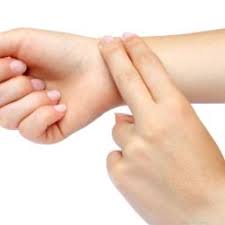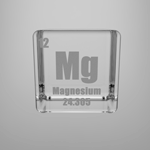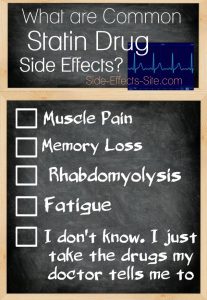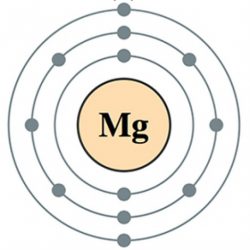 Are you due to visit your doctor. For whatever reason you decide to see a medic, there are some useful things you can do to make sure your visit is worthwhile and helpful and hopefully will aid relief or even cure your symptoms. But you don’t want to get ‘hooked up’ in the medical merry-go-round, for the rest of your life, not if you can help it.
Are you due to visit your doctor. For whatever reason you decide to see a medic, there are some useful things you can do to make sure your visit is worthwhile and helpful and hopefully will aid relief or even cure your symptoms. But you don’t want to get ‘hooked up’ in the medical merry-go-round, for the rest of your life, not if you can help it.
Be Prepared!
Being prepared is the best medicine when seeing the doc. Know your stuff, know your own body and research your symptoms. Here are my best tips for having a helpful, informative and useful doctor’s visit.
- Buy a good quality BP monitor and know your normal blood pressure by taking it on a daily basis. This is one of the best indicators of good health. Don’t worry if your BP is a little over the normal “120/80”. It could be you’ve just eaten or you’re emotional or stressed. There are many reasons why your BP may be elevated and a slight variation with your reading is normal.
- Keep a record for your own benefit and take it with you when you see your doctor. You will soon get to know what raises your BP and what doesn’t. This is a great aid for making sure you’re keeping yourself fit. Know all your symptoms and write them down – take the list with you.
- Write down what you want to ask or tell the doctor, otherwise you’re sure to forget something important that you should have told him. Remember he is on a tight schedule, probably about 10- 15 minutes per patient in the UK.
- If your BP is higher than your home readings, suggest another reading and remind
 the doctor what your BP is at home. Suggest it could be ‘white coat syndrome’. Nearly everyone will have a different BP to what they normally have at home and taking BP over the course of a few days to get an accurate measurement is by far the best way to know your real status.
the doctor what your BP is at home. Suggest it could be ‘white coat syndrome’. Nearly everyone will have a different BP to what they normally have at home and taking BP over the course of a few days to get an accurate measurement is by far the best way to know your real status. - If your doctor suggests a BP drug, refuse it if your BP is in the prehypertensive range, (unless there is a valid reason for you to have this class of drug.) If your doctor says there is, ask him what it is and get him to explain it. I am speaking of the normal hypertension not emergency cases such as malignant hypertension which is a condition where the blood pressure spikes high and fast and is a medical emergency. This, however is rare and most people are in the catagory of ‘walking hypertension’ where natural methods of treatment are better than using drugs. Don’t be frightened to ask questions. It is your body that is going to have to deal with these drugs not his.
- *Know your resting heartrate (RHR), the lowest RHR is usually during the night and first thing before getting out of bed. A normal RHR is supposedly between 60bpm (beats per minute) – 100bpm, but that’s old hat now. Many who have a low heartrate worry about it, thinking they have a dicky heart. The opposite is usually the case.

Usain Bolt RHR 33bpm! The new standard RHR is 50-70bpm Some athletes have a RHR of 40ish. My own resting heartrate is 54 and I used to worry about it being too low but not any more. I think it is good for my age and I do not puff or wheeze when I run or do a little exercise. If your heart is struggling then it will be apparent to you by how it reacts to movement and exercise. A resting heartrate of over 76 is supposed to infer a threat of heart disease. Regularly checking your heart rate throughout the day will give you an idea when your heart rate rises and falls and what activity or exercise increases your heart rate the most. Don’t forget the range of 50-70bpm refers to your RHR not your BPM when moving about or doing exercise.
- Research natural alternatives and suggest these to your doctor. Remember your doctor will probably have scant knowledge about vitamins, minerals and other nutrients. This subject is not taught in medical school. You probably know more about nutrition than he does!
 Don’t antagonise your doctor, work with him. Explain that you would prefer natural alternatives to drugs and get him on your side. If you have any peer reviewed research about the validity of taking certain vitamins and minerals for your condition, take a copy for him to read.
Don’t antagonise your doctor, work with him. Explain that you would prefer natural alternatives to drugs and get him on your side. If you have any peer reviewed research about the validity of taking certain vitamins and minerals for your condition, take a copy for him to read.- Don’t accept a diuretic, it will just relieve your body of water and at the same time deplete vital minerals and nutrients. Diuretics will just dehydrate a body that is probably already dehydrated. Dehydration is not the way to go if you want to improve your health. Your electrolytes will be out of sync and there is now research to prove that diuretics do more harm than good and can compromise the kidneys.
- If your doctor suggests a statin, steer clear of these drugs. There is an article titled “Run From Your Statin Recommending Cardiologist” which you may like to read. There is so much research out there that shows these drugs are ineffective and have serious side effects. A very slight benefit may be available if you have had a previous heart event, but that too is being questioned by further independent researches and studies. This class of drugs is IMHO completely unnecessary but is producing an amazing amount of profits for the pharmaceutical industry with many incentives given to doctors and medics for prescribing them. Be aware!
 * TAKING YOUR PULSE – Use two fingers not your thumb. Place just below wrist crease at base of the thumb. Press lightly until you feel a pulse.
* TAKING YOUR PULSE – Use two fingers not your thumb. Place just below wrist crease at base of the thumb. Press lightly until you feel a pulse.
Count beats for fifteen seconds, multiply times 4. Fifteen seconds times 4 equals rate. Or count beats for thirty seconds, multiply times 2. Thirty seconds times 2 equals rate. Save to your health log.
Again, don’t forget the range of 50-70bpm refers to your RHR not your BPM when moving about or doing exercise.
10 Most common reasons why people see their doctor
Apart from the minor conditions like a cold or flu-like symptoms, the following is a list of the 10 most common ailments that patients consult a doctor for:
- Skin disorders
- Joint disorders such as osteoarthritis
- Back pain
- Cholesterol
- Asthma
- Anxiety, depression and bipolar disorder
- Chronic neurological disorders
- High blood pressure
- Headaches and Migraines
- Diabetes
 Magnesium to the rescue yet again!
Magnesium to the rescue yet again!
Without exception, all of these ailments that people suffer from and consult their medical practioner for, can be alleviated or even cured by a good quality magnesium supplement. This may seem incredulous to some people but it is a fact that every organ, cell, bone, muscle in our bodies, especially our most important muscle the heart, needs magnesium.
All animals, all plants need Magnesium
Mg is a cofactor for up to 800 enzymes at the last count and this number will rise with further research. Magnesium is vital for every living thing on our planet, plants, animals and humans alike. We cannot live without it and with low levels of this incredible mineral you WILL start to feel unwell. If you stay deficient your life will be shortened.
Out of all the vitamins, minerals and other nutrients necessary to have a healthy body and mind, this minerals is king. If I had to choose just one to take every day, this would be it and I do take it every day along with K2 (menaquinone 7) and krill oil. I don’t take any pharmaceutical drugs and will avoid them at all costs.
 Statins my pet hate!
Statins my pet hate!
Although you may see your doctor for one of the reasons given above, it is likely you will come away with more than you bargained for. Some medics will write you a prescription for a hypertension drug as soon as you walk through the door. Others may be on the cholesterol kick and insist you take a statin… forever. Don’t be too depressed or distraught when speaking to him or you’re likely to have an anti-depressant or anti psychotic added to your medication list.
A little flippant but…
Yes, I’m being a little melodramatic and flippant here, but there is more than an element of truth in my diatribe especially when it comes to the older generation. It is normal as you get older that your BP will rise a little. This counteracts any stiffness in your arteries and the body is doing its job to up your BP a little to keep the bloodflow at optimum levels for your age. Although it is normal for slightly higher BP, it is likely that your doctor will still try to prescribe a drug to lower it. If your BP goes too low, you are likely to be affected by lightheadedness, falling or fainting. This happened to my Mum. She fell and broke her hip; that was the beginning of the end for her. The last thing you want in an elderly person is the added risk of fainting or falling, especially as many elderly women have an abundance of calcium in their bodies with little magnesium. This makes for brittle bones!!
Try some Magnesium!
 As we get older our magnesium levels will drop and our calcium levels will rise. This will lead to a magnesium deficiency which is very common in the older generation. Excess calcium will slowly start to calcify the soft tissue if Mg is not there to control it and keep it dissolved in the blood. A Mg supplement will help to stabilise your BP naturally with the aid of your body’s natural way of controlling your BP for the age you are at. This is apart from all the other benefits from being replete in this amazing mineral.
As we get older our magnesium levels will drop and our calcium levels will rise. This will lead to a magnesium deficiency which is very common in the older generation. Excess calcium will slowly start to calcify the soft tissue if Mg is not there to control it and keep it dissolved in the blood. A Mg supplement will help to stabilise your BP naturally with the aid of your body’s natural way of controlling your BP for the age you are at. This is apart from all the other benefits from being replete in this amazing mineral.
1 in 3 in US has Hypertension
According to the USA’s CDC (Centers for Disease Control and Prevention), 1 in every 3 American adults has high BP. Then there’s those people who don’t even know they have it, hence the name ‘the silent killer’. Perhaps it’s just a coincidence but research shows that more than 80% of the US population is deficient in Mg!
One close family member has been on prescription drugs since he was a teenager. He now takes 5 different kinds of BP drug, plus a number of other medications. He has had 4 strokes, has diabetes, suffers from all over body stiffness and other various ailments such as gout, pins and needles in his feet, cataracts, the list goes on. His life is much blighted by his health.
What have drugs done for him… nothing!
Fat lot of good drugs have done for him! He is in his early 60s now with a BP reading often off the scale. All the drugs have done for him over the years is deplete his vitamins, minerals and other nutrients and made him feel progressively worse over the years. But the worst depletion he has will be the magnesium.
This is your life, take control!
Remember, this is your life, your body and your future. The medic sitting in front of you  has scant time to concentrate on what is really wrong with you. He will not look at the whole body, he will concentrate on certain areas of it and may presume you have what he perceives common for your age group. He may or may not be swayed by his pharmaceutical suppliers as to what drug he prescribes you. He may or may not be swayed by the incentives given to him by those suppliers. Who knows! Just make sure you’re in charge!!
has scant time to concentrate on what is really wrong with you. He will not look at the whole body, he will concentrate on certain areas of it and may presume you have what he perceives common for your age group. He may or may not be swayed by his pharmaceutical suppliers as to what drug he prescribes you. He may or may not be swayed by the incentives given to him by those suppliers. Who knows! Just make sure you’re in charge!!
Spread the word!


Nicely written article on how to prepare for our next doctor’s appointment. This is so important because once the doctor finally arrives in the exam room, we’ve forgotten just about everything why we’re there in the first place. I learned something new today and that is the importance of magnesium. I will start taking it on a daily basis but wonder how much?
Hi Karen and thanks for your input. As for your question about how much Mg you should take. Firstly always take a high quality supplement such as ReMag which is readily available in the US not so much in the UK where it is very expensive. Mg Citrate powder is also good but has a slight laxative effect, great if you need it because in powder form it is easy to adjust your dose.
First check if you have any Magnesium Deficiency Symptoms. If you have a few on the list then you are definitely deficient. Even so, Mg is vital for a healthy body and mind and we should be consuming at minimum 400-500mg per day. This is difficult with our poor quality diet from poor quality soils that have been treated relentlessly with herbicides, pesticides and insecticides and other toxins over many years.
I would therefore recommend we all make sure our Mg levels are high. Another controlling factor is how much Calcium is in our diet. It is nearly impossible nowadays to get equal measures of Ca and Mg which is the optimum. Ca is so abundant in our modern diet and also it is so fortified by the food manufacturers. It is also pushed upon women in particularly, to take Ca supplements which can actually worsen your condition. If you take in too much Ca, you will be Mg deficient by default.
Start your doses slowly, making sure you spread them throughout the day to make the intake more natural. I have found my best dosage for my body to be between 600 and 700mg per day. I make up a daysworth by putting the Mg Chloride solution which we make up ourselves, into a glass jug of water. My jug contains 1 litre. As I go by the jug, I have a little. If I go out, I will either take a bottle with some out of the jug in it, or I take a eye dropper bottle with the concentrated Mg Chloride solution and then put a few drops in my tea, coffee or whatever I have to drink when I’m out.
I wonder if it is coincidental that I came across your website on the same day I started taking magnesium for the first time :))
My wife talked me into it but I have yet to notice any kind of differences from taking it … too soon to tell. The information you have here about magnesium is very encouraging and informative. I never knew the many details and benefits of magnesium. Thanks.
Hi L7, quite a coincidence I’d say. I doubt if you’ll notice a difference for a day or two but it depends on the Magnesium Deficiency Symptoms. you may have. There may be subtle differences you may not have clocked, such as feeling calmer, coping with stress better, not getting so tense or tetchy with stressy situations. Also are you sleeping better? Do you have any eye or face twitches that are disappearing? How about headaches or mouth problems such as your teeth aching? When you take your Mg make sure it’s not all in one go. Spread it throughout the day, it works much better. Check you don’t take Calcium to excess as well. It’s in so many foods and fortified by so many food manufacturers. Mg to Ca ratio should be 1:1, very difficult to achieve with just food on our modern day diet.
This article is well-written and straightforward.
I admit that I do not have so much information about magnesium and what it can do to our body.
Your top 10 recommendations are very practical and may change the way we take care ourselves. Though I am still young, do I need to take a magnesium supplement?
Oh, I never mentioned that I always try my best to survive a visit to the doctor. I really hate visiting a doctor 🙂
Hi there Delro and thanks for commenting on the article. As for your question, many young people are deficient in Mg, probably because of the junk food we often eat and feed to our kids nowadays. Constipation in children is common and points to a Mg deficiency. Then there’s ADHD, ADD, IBS, Asthma, depression, anxiety all symptoms of Mg deficiency. All those conditions are rife amongst the younger population. Thanks for your input!
I continue to be amazed at the health benefits of magnesium. I have read several of your posts and I know you are a huge advocate for magnesium. I didn’t realize that 80% of the US population is deficient in Mg. That is pretty alarming. As for surviving a doctor visit, I agree with your points. The biggest issue I have is the blood pressure reading. Mine is always high at the doctors office. Both of my parents have taken diuretics for years, I didn’t realize how much worse off they might be for taking them. I will have to pass this post on. Thank you once again for writing a very informative, thorough post. I will continue to check back for more!
Hi Steve and Kris and thanks for reading the post. Your observation about the blood pressure reading is so common when we visit our medic. Luckily for me, I had a nurse that realized my higher reading could be ‘white coat syndrome’ and she took it again, but this time she told me to look at a blank wall! That did the trick, she said my second reading was spot on! Not all nurses/medics are this thorough though and a BP medication can be prescribed which is completely unnecessary. Try and speak with your parents’ doctor and get them off those diuretics. I am doing a post right now for next week, explaining how diuretics work. It may be of interest to you and your parents.